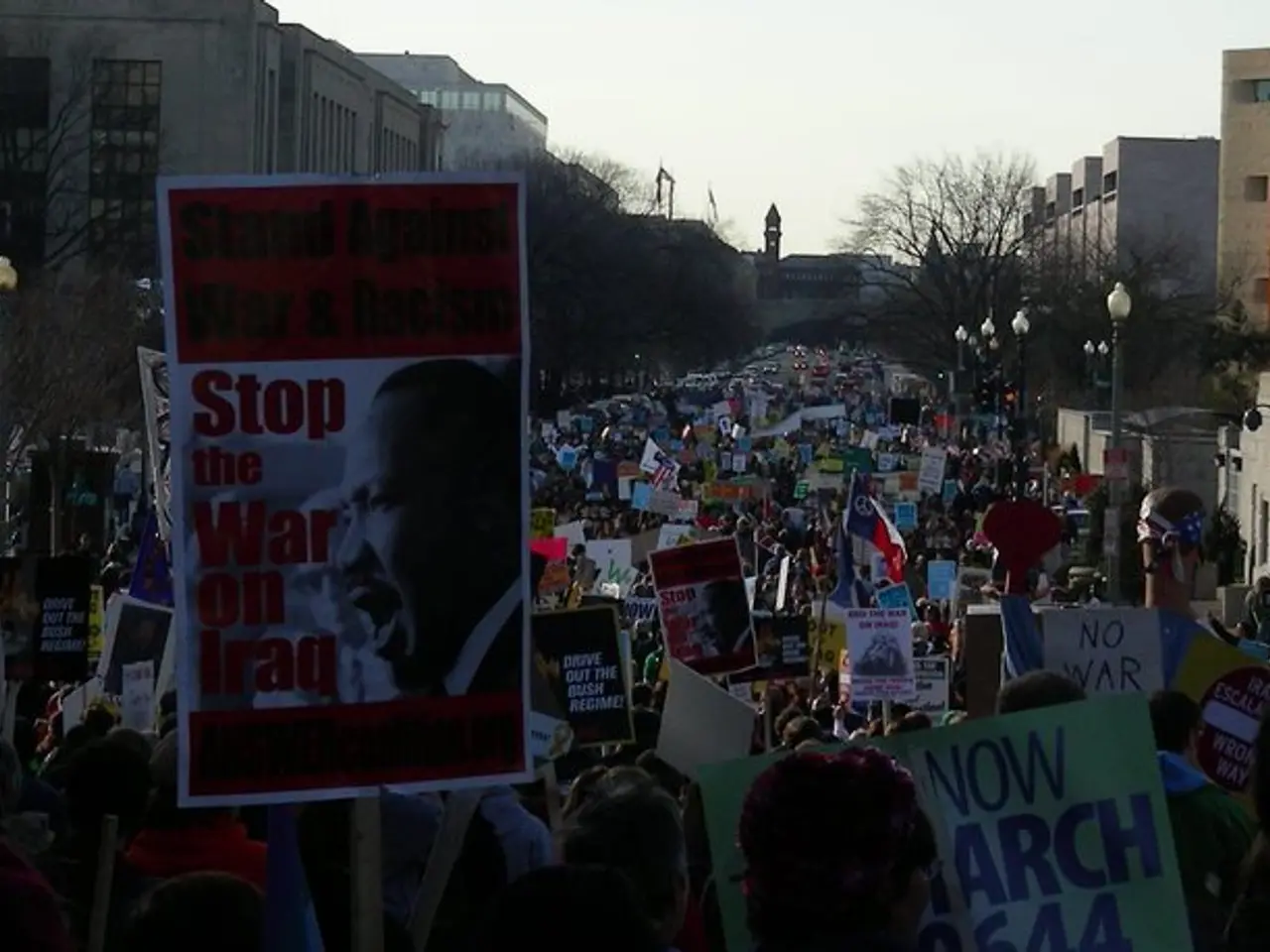U.S. Citizenship Revocation Alert: American Nationality No Longer Assured for Naturalized Individuals
In a significant policy shift, the Department of Justice (DOJ) has elevated denaturalization to one of its top five enforcement priorities. This move could potentially impact a wide range of naturalized U.S. citizens and green card holders who have become naturalized.
The current rules for denaturalization allow the DOJ to revoke citizenship if it was illegally obtained or procured by concealment of a material fact or willful misrepresentation. The DOJ's Civil Division enforcement memorandum directs maximum pursuit of denaturalization cases "permitted by law and supported by evidence," signaling an intensified and broader use of this tool.
Categories prioritized include those naturalized individuals who pose a danger to national security, have engaged in human rights abuses, are connected to criminal gangs or trafficking, committed felonies or fraud omitted during naturalization, or have pending criminal charges deemed important by the DOJ.
This development has caused anxiety in immigrant communities, with many naturalized citizens worried that past errors or missteps, whether intentional or not, could lead to the revocation of their citizenship. A more aggressive approach to denaturalization is being taken by the government, with the Justice Department making it a key enforcement focus.
President Donald Trump has been vocal about investigating the possibility of revoking the citizenship of high-profile individuals, including Elon Musk and NYC mayoral candidate Zohran Mamdani. Trump believes individuals with certain political views or ideologies are a threat and could be at risk of denaturalization.
Constitutionally, denaturalization must not violate protections guaranteed under the 14th Amendment. Justice Kagan has emphasized that statutes cannot strip citizenship from someone who met legal criteria when acquiring it. This sets a constitutional constraint on the expanded enforcement, requiring robust proof that naturalization was fraudulently obtained.
The practical implications are significant: naturalized U.S. citizens face increased risk of losing citizenship for a wider range of acts, with no statute of limitations on civil denaturalization cases. This shift raises civil liberties concerns around due process, political expression, and the integrity of citizenship as courts wrestle with these enforcement expansions.
Recent court rulings also highlight complexities, such as when a denaturalized person’s criminal conviction occurred while a U.S. citizen, affecting deportation eligibility.
In Houston, a woman who pleaded guilty to filing a false tax return in 2019 is currently having her citizenship revoked. Underreporting income on a tax return could lead to legal trouble and potential loss of citizenship for naturalized citizens.
The development of a national citizenship database by the Department of Homeland Security could further facilitate this broader approach to denaturalization. The database, established on July 1, 2025, aims to streamline the process and provide a centralized resource for enforcement officials.
Legal experts are alarmed by the potential for denaturalization to stretch traditional limits on when citizenship can be revoked. The current policy shift reflects a marked focus on denaturalizing individuals implicated in serious crimes or fraud, significantly impacting naturalized citizens.
The politics surrounding policy-and-legislation have led to an intensified focus on denaturalization, with the DOJ making it one of their top five enforcement priorities. This move could affect a wide range of naturalized citizens and green card holders who have become naturalized, including those with past errors or missteps, as the DOJ pursues denaturalization cases "permitted by law and supported by evidence."
The new policy prioritizes cases against naturalized individuals who pose a danger to national security, have engaged in human rights abuses, are connected to criminal gangs or trafficking, committed felonies or fraud omitted during naturalization, or have pending criminal charges deemed important by the DOJ. However, the practical implications, including no statute of limitations on civil denaturalization cases and rising civil liberties concerns around due process, political expression, and the integrity of citizenship, have sparked debate among legal experts.







